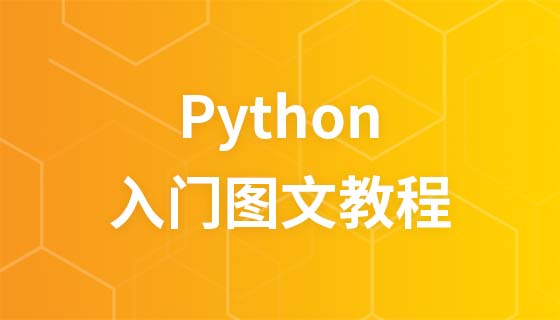1: sys是python自帶模組.
利用 import 語句輸入sys 模組。
相關推薦:《python影片》

#當執行import sys後, python在sys.path 變數中所列目錄中尋找sys 模組檔。然後執行這個模組的主區塊中的語句進行初始化,然後就可以使用模組了 。
2: sys模組常見函數
可以透過dir()方法查看模組中可用的方法. 結果如下, 很多我都沒有用過, 所以只是簡單介紹幾個自己用過的方法.
$ python Python 2.7.6 (default, Oct 26 2016, 20:30:19) [GCC 4.8.4] on linux2 Type "help", "copyright", "credits" or "license" for more information. >>> import sys >>> dir(sys) ['__displayhook__', '__doc__', '__excepthook__', '__name__', '__package__', '__stderr__', '__stdin__', '__stdout__', '_clear_type_cache', '_current_frames', '_getframe', '_mercurial', '_multiarch', 'api_version', 'argv', 'builtin_module_names', 'byteorder', 'call_tracing', 'callstats', 'copyright', 'displayhook', 'dont_write_bytecode', 'exc_clear', 'exc_info', 'exc_type', 'excepthook', 'exec_prefix', 'executable', 'exit', 'flags', 'float_info', 'float_repr_style', 'getcheckinterval', 'getdefaultencoding', 'getdlopenflags', 'getfilesystemencoding', 'getprofile', 'getrecursionlimit', 'getrefcount', 'getsizeof', 'gettrace', 'hexversion', 'long_info', 'maxint', 'maxsize', 'maxunicode', 'meta_path', 'modules', 'path', 'path_hooks', 'path_importer_cache', 'platform', 'prefix', 'ps1', 'ps2', 'py3kwarning', 'pydebug', 'setcheckinterval', 'setdlopenflags', 'setprofile', 'setrecursionlimit', 'settrace', 'stderr', 'stdin', 'stdout', 'subversion', 'version', 'version_info', 'warnoptions']
(1) sys.argv 實作從程式外部傳遞參數
sys.argv 變數是一個包含了命令列參數的字串列表, 利用命令列想程式傳遞參數. 其中,腳本的名稱總是sys.argv 列表的第一個參數。
(2) sys.path 包含輸入模組的目錄名稱清單。
取得指定模組搜尋路徑的字串集合,可以將寫好的模組放在得到的某個路徑下,就可以在程式中import時正確找到。當import導入module_name時,就是根據sys.path的路徑來搜尋module.name,也可以自訂加入模組路徑。
sys.path.append(“自訂模組路徑”)
(3) sys.exit([arg]) 程式中間的退出, arg=0為正常退出
#一般情況下執行到主程序末尾,解釋器自動退出,但是如果需要中途退出程序,可以調用sys.exit函數,帶有一個可選的整數參數返回給調用它的程序,表示你可以在主程式中捕獲對sys.exit的呼叫。 (0是正常退出,其他為異常)當然也可以用字串參數,表示錯誤不成功的報錯訊息。
(4) sys.modules
sys.modules是一個全域字典,該字典是python啟動後就載入在記憶體中。每當程式設計師導入新的模組,sys.modules將自動記錄該模組。當第二次再導入該模組時,python會直接到字典中查找,從而加快了程式運行的速度。它擁有字典所擁有的一切方法.
(5) sys.getdefaultencoding() / sys.setdefaultencoding() / sys.getfilesystemencoding()
sys.getdefaultencoding()
#取得系統目前編碼,一般預設為ascii。
sys.setdefaultencoding()
設定係統預設編碼,執行dir(sys)時不會看到這個方法,在解釋器中執行不通過,可以先執行reload(sys) ,在執行setdefaultencoding('utf8'),此時將系統預設編碼設為utf8。 (請參閱設定係統預設編碼)
sys.getfilesystemencoding()
取得檔案系統使用編碼方式,Windows下回傳'mbcs',mac下回傳'utf-8'
(6) sys.stdin, sys.stdout, sys.stderr
stdin , stdout , 以及stderr 變數包含與標準I/O 流對應的流物件. 如果需要更好地控制輸出, print 不能滿足你的要求, 它們就是你所需要的. 你也可以替換它們, 這時候你就可以重定向輸出和輸入到其它設備( device ), 或者以非標準的方式處理它們.
(7) sys.platform
取得目前系統平台. 如:win32、Linux等。
3: 實例
(1) sys.argv sys.path
$ cat sys-test.py
#!/usr/bin/python
import sys
print 'The command line arguments are:'
for i in sys.argv:
print i
print '\n\nThe PYTHONPATH is', sys.path, '\n'執行結果:
$ python sys-test.py my name is ubuntu The command line arguments are: sys-test.py my name is ubuntu The PYTHONPATH is ['/work/python-practice', '/usr/lib/python2.7', '/usr/lib/python2.7/plat-x86_64-linux-gnu', '/usr/lib/python2.7/lib-tk', '/usr/lib/python2.7/lib-old', '/usr/lib/python2.7/lib-dynload', '/usr/local/lib/python2.7/dist-packages', '/usr/lib/python2.7/dist-packages', '/usr/lib/python2.7/dist-packages/PILcompat', '/usr/lib/python2.7/dist-packages/gtk-2.0', '/usr/lib/pymodules/python2.7', '/usr/lib/python2.7/dist-packages/ubuntu-sso-client']
(2) sys.exit
import sys
def exitfunc(value):
print (value)
sys.exit(0)
print("hello")
try:
sys.exit(90)
except SystemExit as value:
exitfunc(value)
print("come?")運行結果:
hello 90
程式先印hello,在執行exit(90),拋異常把90傳給values,values在傳進函數中執行,印90程序退出。後面的”come?”因為已經退出所以不會被打印. 而此時如果把exitfunc函數裡面的sys.exit(0)去掉,那麼程式會繼續執行到輸出”come?”.
# (3) sys.modules
sys.modules.keys() 傳回所有已匯入的模組清單
keys是模組名稱
#values是模組
modules返迴路徑
import sys
print(sys.modules.keys())
print("**************************************************************************")
print(sys.modules.values())
print("**************************************************************************")
print(sys.modules["os"])運行結果:
['copy_reg', 'sre_compile', '_sre', 'encodings', 'site', '__builtin__', 'sysconfig', '__main__', 'encodings.encodings', 'abc', 'posixpath', '_weakrefset', 'errno', 'encodings.codecs', 'sre_constants', 're', '_abcoll', 'types', '_codecs', 'encodings.__builtin__', '_warnings', 'genericpath', 'stat', 'zipimport', '_sysconfigdata', 'warnings', 'UserDict', 'encodings.ascii', 'sys', 'codecs', '_sysconfigdata_nd', 'os.path', 'sitecustomize', 'signal', 'traceback', 'linecache', 'posix', 'encodings.aliases', 'exceptions', 'sre_parse', 'os', '_weakref'] ******************************************************************************* [<module 'copy_reg' from '/usr/lib/python2.7/copy_reg.pyc'>, <module 'sre_compile' from '/usr/lib/python2.7/sre_compile.pyc'>, <module '_sre' (built-in)>, <module 'encodings' from '/usr/lib/python2.7/encodings/__init__.pyc'>, <module 'site' from '/usr/lib/python2.7/site.pyc'>, <module '__builtin__' (built-in)>, <module 'sysconfig' from '/usr/lib/python2.7/sysconfig.pyc'>, <module '__main__' from 'sys-test1.py'>, None, <module 'abc' from '/usr/lib/python2.7/abc.pyc'>, <module 'posixpath' from '/usr/lib/python2.7/posixpath.pyc'>, <module '_weakrefset' from '/usr/lib/python2.7/_weakrefset.pyc'>, <module 'errno' (built-in)>, None, <module 'sre_constants' from '/usr/lib/python2.7/sre_constants.pyc'>, <module 're' from '/usr/lib/python2.7/re.pyc'>, <module '_abcoll' from '/usr/lib/python2.7/_abcoll.pyc'>, <module 'types' from '/usr/lib/python2.7/types.pyc'>, <module '_codecs' (built-in)>, None, <module '_warnings' (built-in)>, <module 'genericpath' from '/usr/lib/python2.7/genericpath.pyc'>, <module 'stat' from '/usr/lib/python2.7/stat.pyc'>, <module 'zipimport' (built-in)>, <module '_sysconfigdata' from '/usr/lib/python2.7/_sysconfigdata.pyc'>, <module 'warnings' from '/usr/lib/python2.7/warnings.pyc'>, <module 'UserDict' from '/usr/lib/python2.7/UserDict.pyc'>, <module 'encodings.ascii' from '/usr/lib/python2.7/encodings/ascii.pyc'>, <module 'sys' (built-in)>, <module 'codecs' from '/usr/lib/python2.7/codecs.pyc'>, <module '_sysconfigdata_nd' from '/usr/lib/python2.7/plat-x86_64-linux-gnu/_sysconfigdata_nd.pyc'>, <module 'posixpath' from '/usr/lib/python2.7/posixpath.pyc'>, <module 'sitecustomize' from '/usr/lib/python2.7/sitecustomize.pyc'>, <module 'signal' (built-in)>, <module 'traceback' from '/usr/lib/python2.7/traceback.pyc'>, <module 'linecache' from '/usr/lib/python2.7/linecache.pyc'>, <module 'posix' (built-in)>, <module 'encodings.aliases' from '/usr/lib/python2.7/encodings/aliases.pyc'>, <module 'exceptions' (built-in)>, <module 'sre_parse' from '/usr/lib/python2.7/sre_parse.pyc'>, <module 'os' from '/usr/lib/python2.7/os.pyc'>, <module '_weakref' (built-in)>] ******************************************************************************* <module 'os' from '/usr/lib/python2.7/os.pyc'>
(4) sys.stdin/sys.stdout/sys.stderr
#stdin,stdout,stderr在Python是檔案屬性物件, 他們在python啟動時自動與shell環境中的標準輸入, 輸出, 出錯相關. 而python程式在shell中的I/O重定向是有shell來提供的,與python本身沒有關係.python程式內部將stdin, stdout, stderr讀寫操作重定向到一個內部物件.
標準輸入##
import sys
#print('Hi, %s!' %input('Please enter your name: ')) python3.*版本用input
print('Hi, %s!' %raw_input('Please enter your name: ')) #python2.*版本用raw_input
运行结果:
Please enter your name: er
Hi, er!
等同于:
#!/usr/bin/python
import sys
print('Please enter your name:')
name=sys.stdin.readline()[:-1]
print('Hi, %s!' %name)
标准输出
print('Hello World!\n')
等同于:
#!/usr/bin/python
import sys
sys.stdout.write('output resule is good!\n')
其他实验
#!/usr/bin/python
import sys
for i in (sys.stdin, sys.stdout, sys.stderr):
print(i)python sys-test1.py <open file '<stdin>', mode 'r' at 0x7fa4e630f0c0> <open file '<stdout>', mode 'w' at 0x7fa4e630f150> <open file '<stderr>', mode 'w' at 0x7fa4e630f1e0>
以上是python sys模組的基本介紹的詳細內容。更多資訊請關注PHP中文網其他相關文章!



